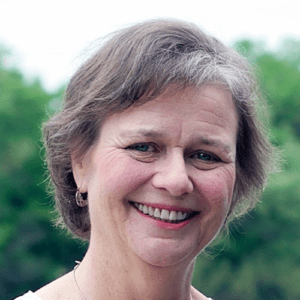
The purpose of this blog is to stimulate thought and discussion about important issues in healthcare. Opinions expressed are those of the author and do not necessarily express the views of CMDA. We encourage you to join the conversation on our website and share your experience, insight and expertise. CMDA has a rigorous and representative process in formulating official positions, which are largely limited to bioethical areas.
Thinking of Ultimate Things
May 28, 2020
by Amy Givler, MD
After 10 weeks of avoiding people, I realize how much I miss them. People, that is. I always thought I disliked crowds, but now I find myself missing crowds also. People bring me pleasure. People are precious.
For two weeks, I’ve been seeing my patients in person again. Telemedicine was okay (barely okay), but it took a half hour of my nurse’s time to set up a visit, and the sound and visual quality was often poor. And, of course, I couldn’t examine patients properly, and only rarely had they recently taken their own blood pressure.
Face to face doctoring is better, though it’s “mask to mask” doctoring these days. Still, I think I practice much better medicine when both my patient and myself are in the same room, even if we are seated six feet apart. I look forward to when I can see people’s facial expressions, and they can see mine, but for now, this is good.
When my husband and I take our near-daily walks, the people we pass greet us heartily, and we them. Before this pandemic, people rarely made eye contact. But humans are social creatures, and a warm hello on a walking path helps fill a deep need for human contact.
So I don’t begrudge people who are socializing more than I think is wise. And in my state of Louisiana, there are a lot of them. We began opening up with “Phase 1” on May 15, and immediately many seemed to consider it “back to normal.” I often see people without masks in stores, and on social media I read about friends gathering in groups.
But the virus hasn’t changed: it’s still infectious, potentially deadly and causing a nasty array of symptoms I do not want to personally experience. Thus, I limit my time in indoor spaces outside my home—always wearing a mask, keeping my hands clean and not touching my face.
Clearly the opinion of a person entering stores without a mask differs from mine on how dangerous COVID-19 is. We all have to figure out what is our own acceptable level of risk. I need knowledge, based on my reading medical reports, and I need wisdom to know how to respond to my “neighbors” who are reading radically different material which is often guiding their behavior.
Many whose behavior is riskier are expressing their yearning to get back to what is familiar, to live “normally” again. I empathize, and so I want to be patient and understanding with them, treating them with kindness and grace. But when asked—and okay, I admit it, sometimes when not asked—I share my informed opinion on how to stay healthy. I am also insisting my patients wear masks when in the same room as me. And I take a few minutes to teach them how to best wear a mask.
During the Blitz, when German planes bombed London and other cities in 1940 and 1941, eventually killing 40,000 souls, some people slept in communal shelters underground, but others chose to stay in their own beds. Many families left the cities or sent their children to the countryside. All had to decide what level of risk they were willing to live with.
The mental stress was immense, exacerbated by sleep deprivation. Yet morale in London was high, which perplexed the Germans. They had expected England to quickly concede defeat as soon as the bombs started falling. Yet two months into the Blitz, Joseph Goebbels, Hitler’s chief propagandist, told his lieutenants that “an unmistakable wave of optimism and make-believe is at present being spread by London over the whole of Britain and possibly also over the world as a whole.”
In times of war, or pandemic, the possibility of sudden death stares each of us in the face. We can’t ignore it. But, of course, this has been true our entire lives, not just the last three months. We live in an imperfect world where unexpected death or disability could occur at any time—a car crash, a heart attack, a gunshot. The risk is small for those things, true, but it is not, and never has been, zero.
In conversation with friends and family, the subject of God comes up easily these days. What accompanies a keen awareness of our human frailty are thoughts of what comes after this life. That is, eternity.
So may this be the new normal, to think of God and ultimate things. Those of us who love and follow Jesus can point people to Him as the maximum refuge, the place of perfect safety. And because God is good to His core, we can all trust Him.
Is our health solid and secure? No. It could vanish at any time. But there is a reason the Bible describes God so often as a rock. Rocks are solid and heavy and real. “…there is no Rock like our God” (1 Samuel 2:2, NLT). “The Lord is my rock, my fortress, and my savior; my God is my rock, in whom I find protection” (Psalms 18:2a, NLT).
Life, as we all know so well, is fragile. But God is a rock, and he is good, and he has a rescue plan. And, if we love him, that rescue plan involves us.
“So we are Christ’s ambassadors; God is making his appeal through us. We speak for Christ when we plead, ‘Come back to God!’…Indeed, the ‘right time’ is now. Today is the day of salvation’” (2 Corinthians 5:20, 6:2, NLT).

